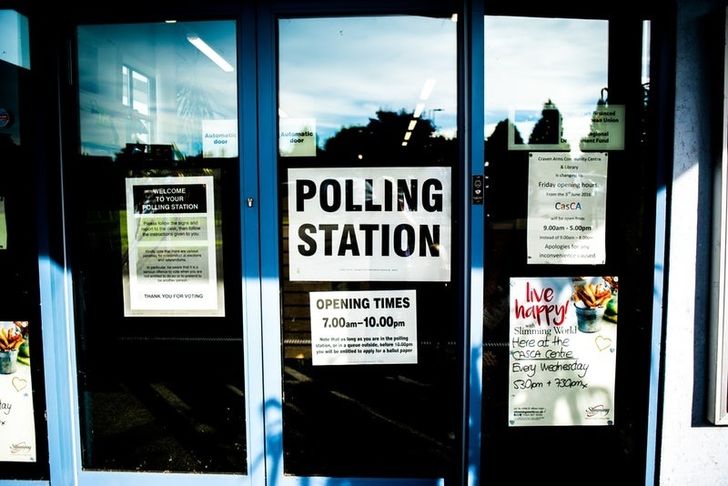1. " I don't like any of the candidates."
Equally as depressing as it is true, most of the time elections are a matter of selecting the lesser of the evils.
If you've ever met anyone that you like everything about, then I'm impressed. People genuinely expect too much from political candidates. Of course, the majority could do a lot better in the likable department, but that doesn't necessarily mean they will.
But, the likelihood of a candidate running for an office that has only characteristics that you love is utterly improbable.
It's sad that it's the way it is, that doesn't change reality. There is always a better choice.
Maybe when it comes down to final elections, you feel neither candidate is particularly good for the job. So, it comes time to ask yourself: which is better?
2. "My vote wouldn't even make a difference."
I was never one for word problems in school.
But, this is actually one instance where word problems prepared me for real life math problems.
Here we go:
John can't decide who to vote for in the 2020 presidential election. He doesn't necessarily know to much about either candidate, and what he knows he doesn't like. He decides he'd rather just not vote, than go through the trouble of researching the candidates.
Pat woke up election day with a cold. She decides that one vote wouldn't actually make that much of a difference in long run. She has work, sick kids, and a runny nose to deal with. What's the big deal if she sits this election out?
Jim is way too laid back to even worry about all the problems people are complaining about. He has major issue with the government, and thinks America needs to get it together. Election day roles around, and he has no plans to vote, and has never even registered. He doesn't like politics anyway.
So, what do John, Pat, and Jim have in common? How many people end up not voting once we compile the thousands of stories like these together?
a. A lot.
b. Thousands.
c. Can't count that high.
d. Enough to sway an election.
Correct answer: all of the above.
We have a major problem with personal responsibility in America. It's easy to think on a small scale. Sure, if you're the only person in the entirety of the country who doesn't vote, it probably wouldn't make that big of a difference.
But, when we have multiple thousands of people thinking that way, this individual based choice effects the majority as a whole, easily producing a number of people not voting who could've had the numbers to change and election outcome.
3. "I don't like politics."

I'm fighting my eyes to keep them from rolling to the back of my head even while typing this.
Okay, you don't like politics.
Do you like America?
There's a major difference caring about politics and caring about your country-- or even if it's merely just caring about the life you lead in the country that allows you do to so.
Sure, mainstream politics may not be your cup of tea. Honestly, I don't think they are anyone's.
I always say I love politics, but that's a lie. I actually very much dislike politics, but I believe they're vital.
If you don't like politics, voting for officials that you believe will make politics better, or at least not worse, will help take those strides.
Not liking politics is not at all a reason not to vote. If anything, it's the exact opposite; it's the very reason you should.
Be educated about your choices.
Don't take for granted the fact that you have the liberty to vote.
Accept your personal, political responsibility to the betterment of your country.












